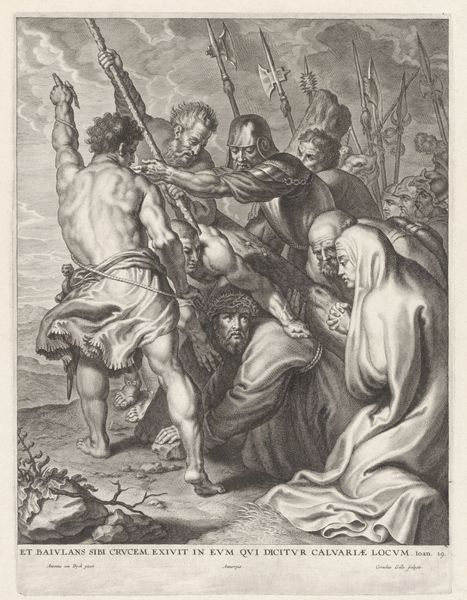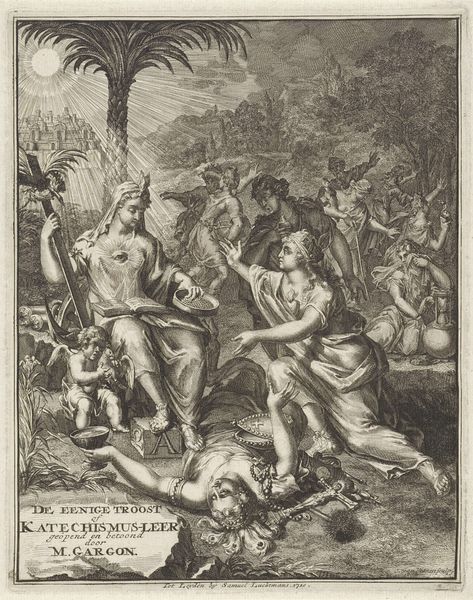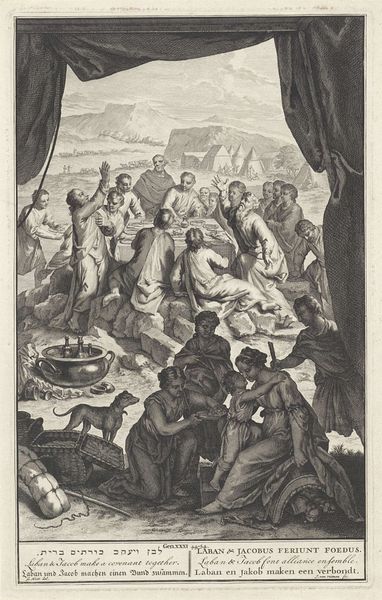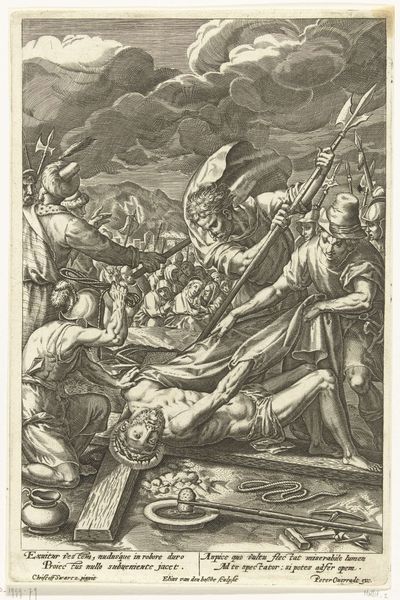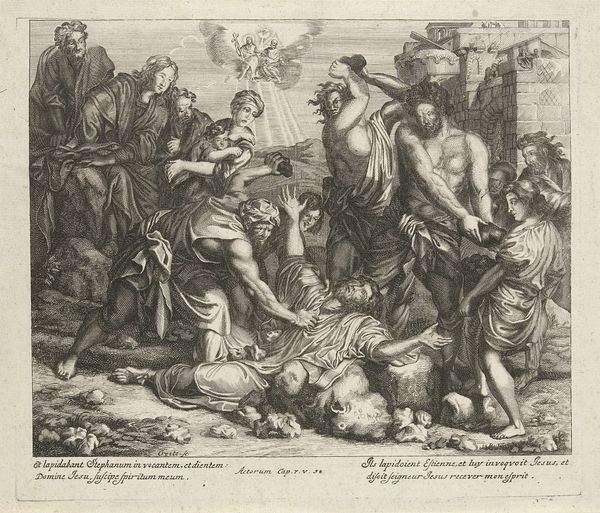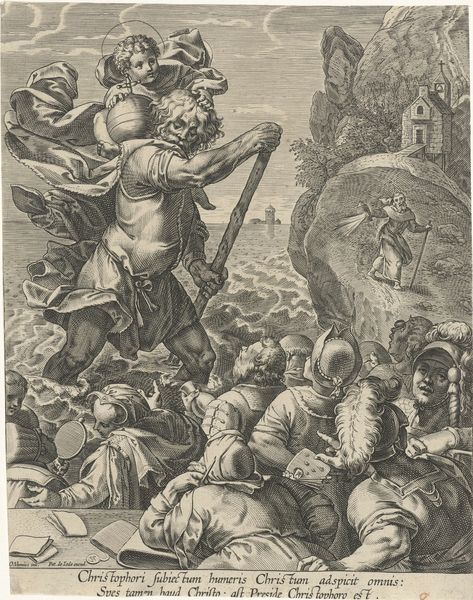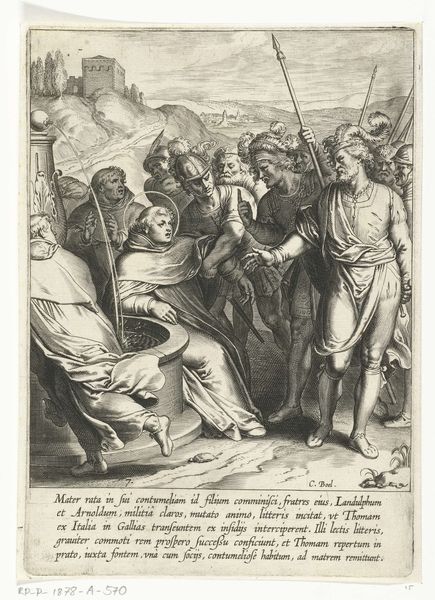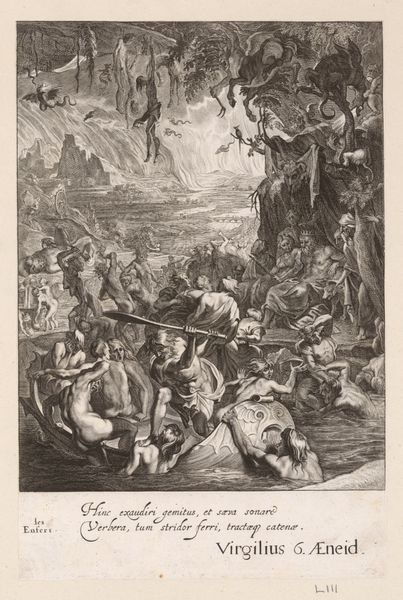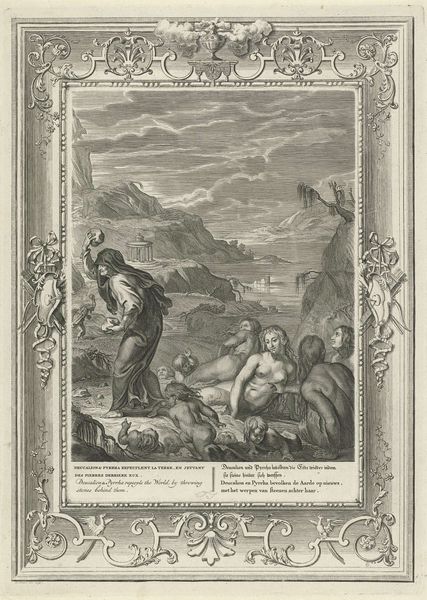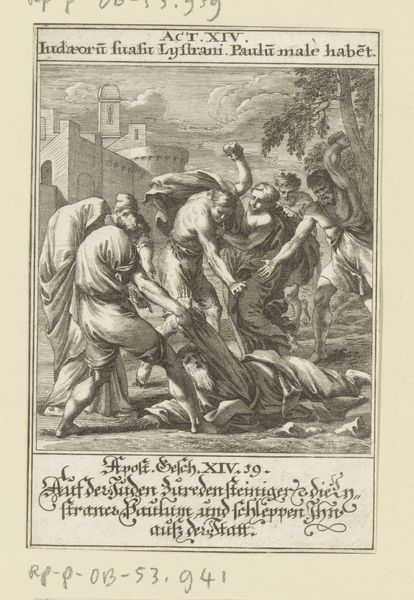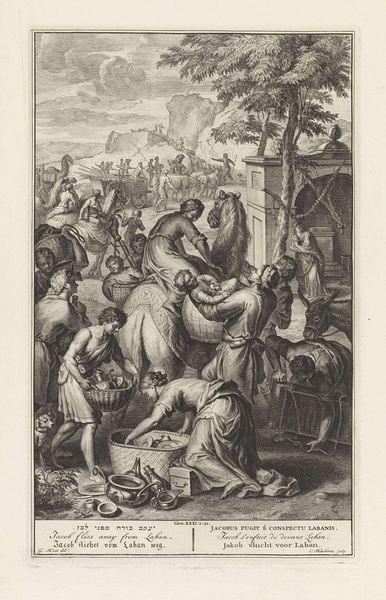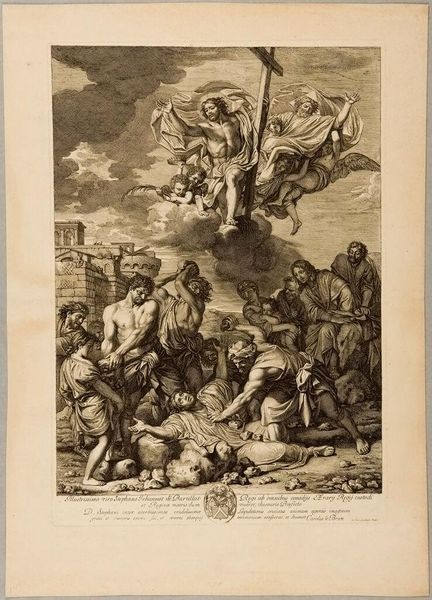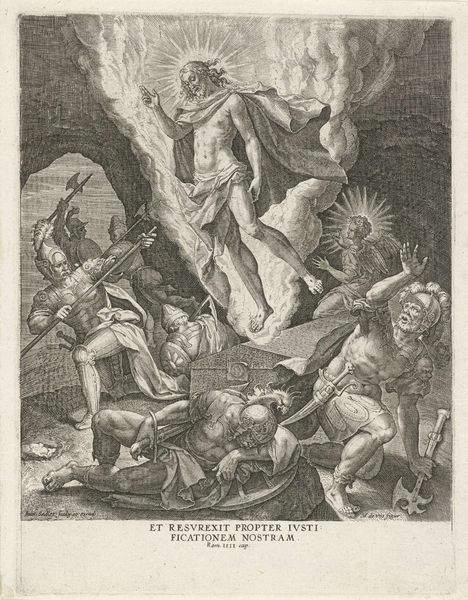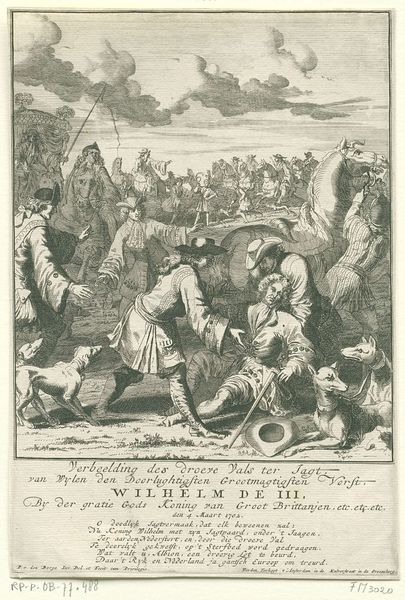
print, engraving
#
allegory
#
baroque
# print
#
figuration
#
history-painting
#
engraving
Dimensions: height 319 mm, width 218 mm
Copyright: Rijks Museum: Open Domain
Pieter Perret’s engraving, made around 1600, depicts Minerva protecting the shepherd Syphilis. The goddess of wisdom, with her spear and shield emblazoned with Medusa's head, stands guard. Here, the Medusa isn’t just a monster; she embodies a primal fear of the unknown, a subconscious dread of nature's chaotic forces. Minerva uses this potent symbol to ward off danger, a reflection of humanity's attempt to control inner turmoil. The Medusa motif has a long history, dating back to ancient Greece. Initially a symbol of protection, it evolved into a representation of feminine rage and power. Think of Caravaggio's Medusa; the raw, visceral horror captures the psychoanalytic idea of confronting one's shadow self, those repressed aspects of the psyche. This image delves into our collective unconscious, resonating with the continuous human struggle to tame our fears. The recurring symbol of the Medusa tells us that we are forever entwined in this cycle of fear, protection, and the quest for understanding.
Comments
No comments
Be the first to comment and join the conversation on the ultimate creative platform.
